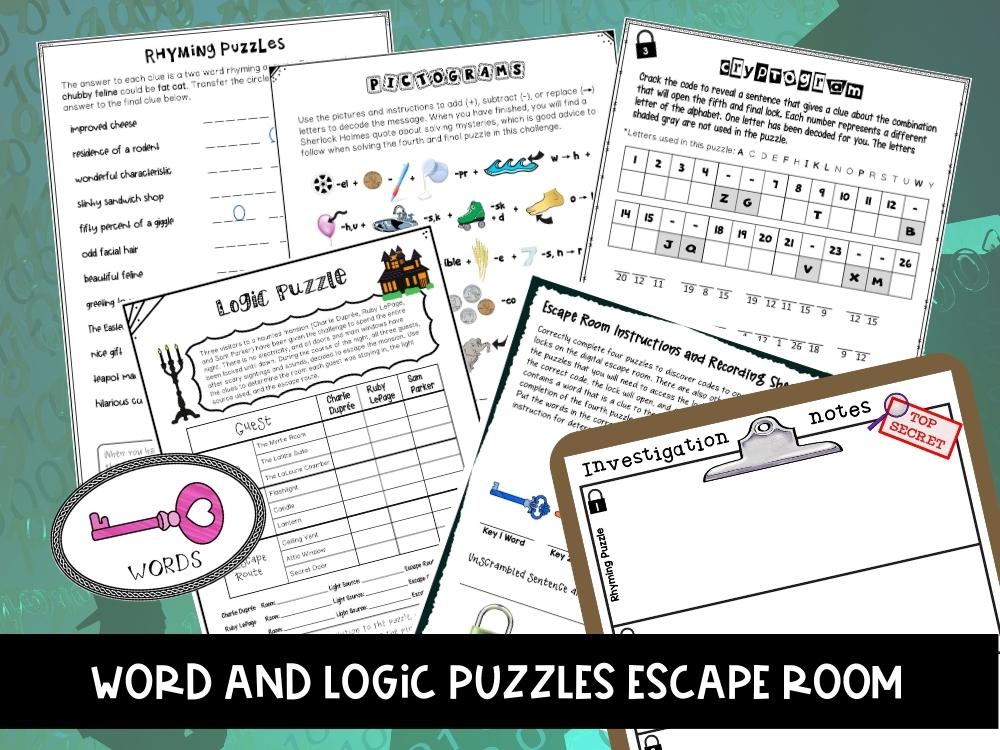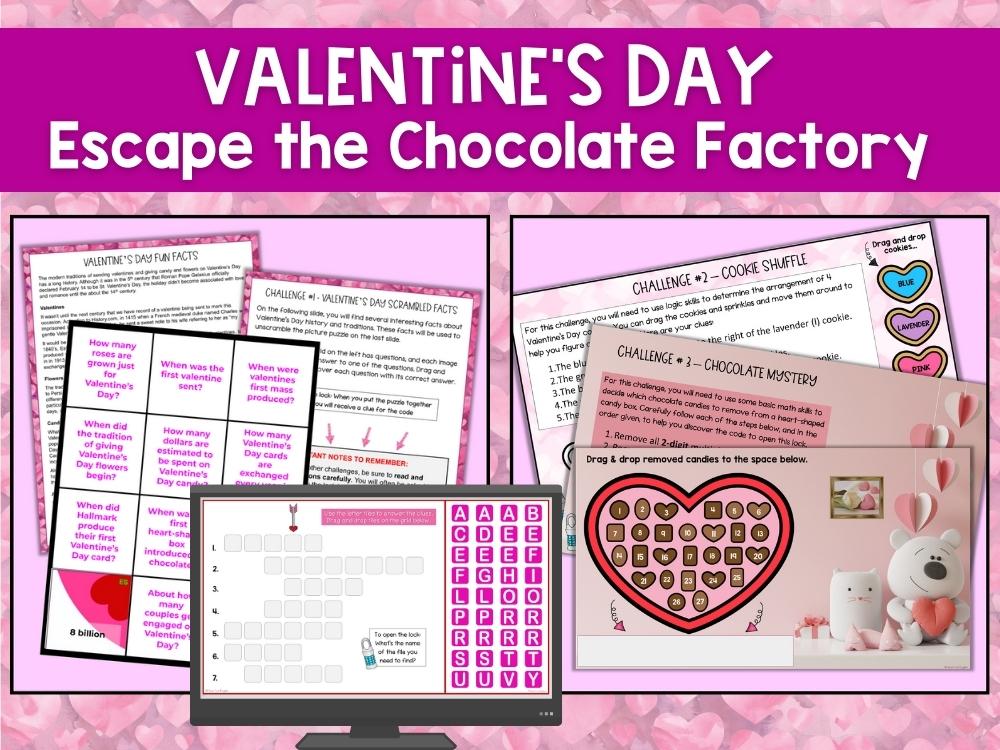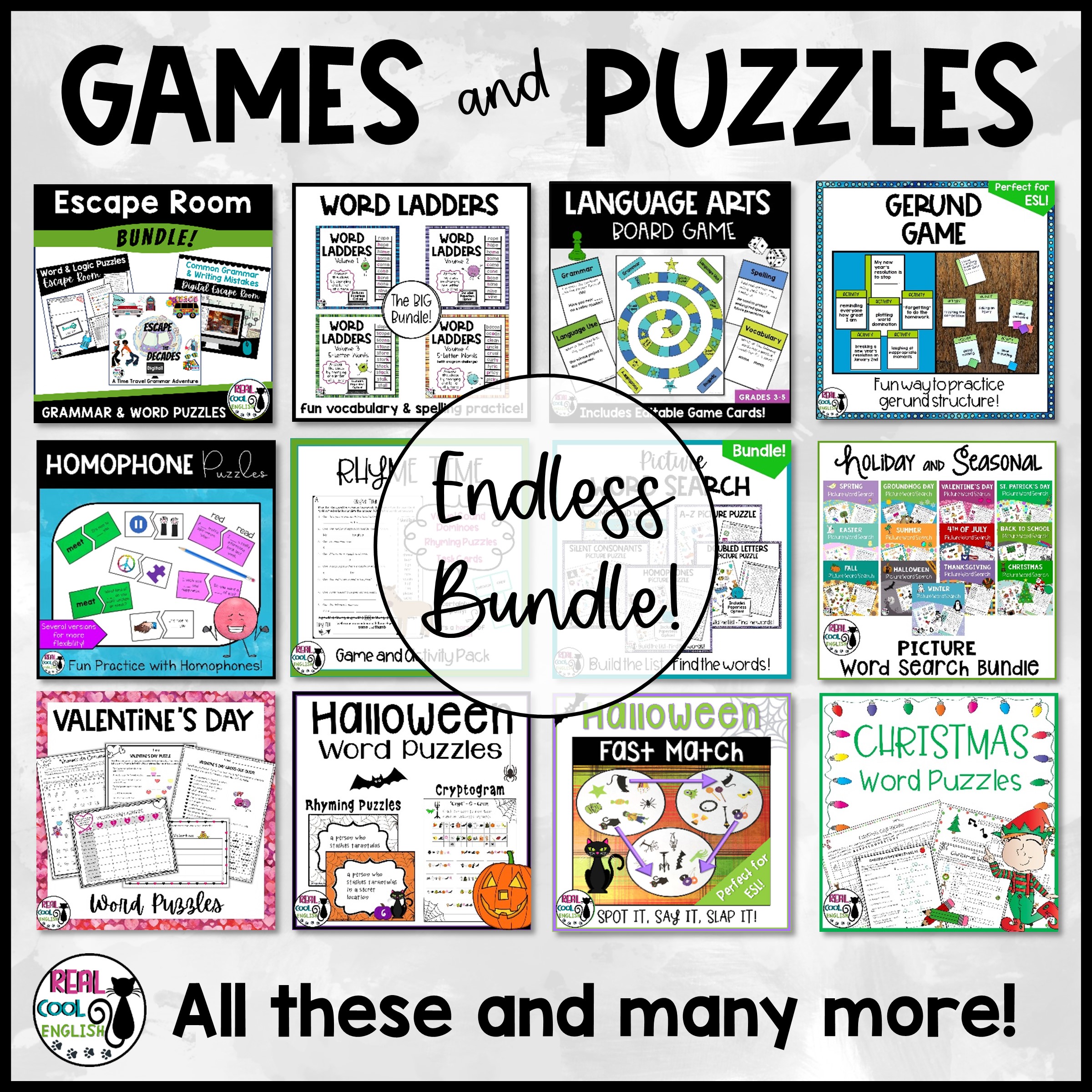11 Surprising Benefits of Escape Rooms in the Classroom
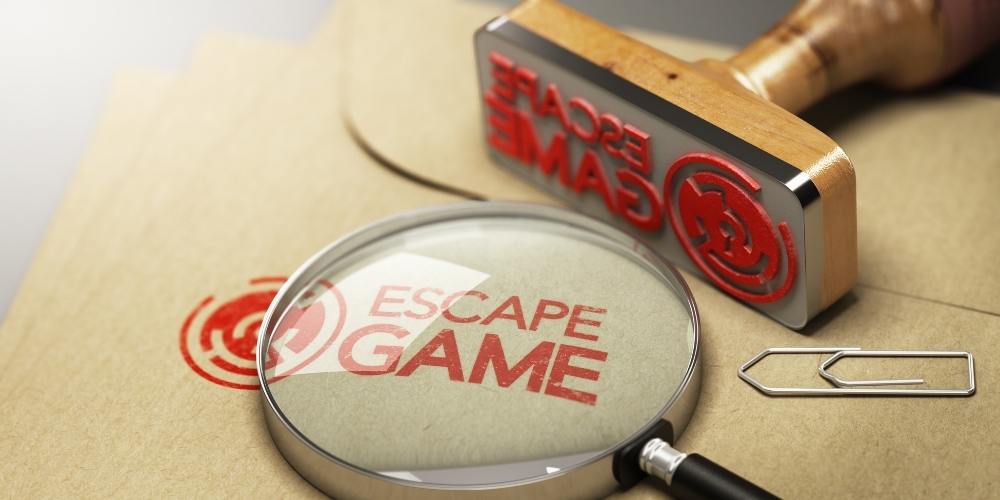
If you’ve ever done an escape room with your students, you probably already know that they are a big hit in the classroom! Nothing seems to engage students the way playing a game does. And there’s just something about following clues and solving mysteries that appeals to everyone. But the best part for us as teachers is that escape rooms offer so much more than just a fun break for our students.
If you are on the fence about whether to use an escape room – maybe you think it doesn’t offer enough rigor, or that it’s just something that takes away from the curriculum – I’d like to change your mind! Of course, there are a lot of activities out there that are called escape rooms, but not all are created equally. Some are just practice worksheets disguised as an escape room game, but I’m talking about fun escape room activities with a variety of collaborative and brain-building activities. A well-chosen escape room can offer the fun of a game, which students love, and multiple opportunities for learning, which will make your teacher’s heart happy!
In addition to giving students a fun break, which in and of itself has value in the classroom, here are several other benefits of escape rooms:
1. Fosters teamwork and collaboration
When students are presented with a challenge in an escape room game, they are motivated to find the correct answer. They quickly find that having more than one person to work on the challenge and talking out the problems can lead them to the solution faster. They are all working toward the same goal – whether it’s to beat the clock or just be the first team to finish the game.

2. Improves communication skills
Students need to quickly move through the activities, so they are inspired by the ticking clock to voice their ideas to help figure out the problems. If one student is going down an incorrect path, another student may have figured out the secret to the challenge. They will need to communicate to the team members their idea and reasoning. In other team activities, one person might take on a leadership role, while others tend to hold back. But something about a game, and especially an escape room game, often encourages normally quiet students to speak up.
For language learners, this becomes an even more important benefit. Students are getting important speaking practice by having to discuss the challenges. But the timed nature of the activity provides another advantage: students who are normally hesitant to speak tend to speak more freely. Their excitement about the game allows them to speak more fluently because they are not taking time to think about the words.

3. Builds relationships
Something about being part of a team immediately bonds us. We’re having fun, we are working toward a common goal, and we feel a sense of belonging. This is why escape room games are perfect back to school or icebreaker activities when students are a bit nervous and reserved. They are also a great way to make new relationships. Putting students in different groups if they tend to bond with the same people is a great way to help students make new connections with other students.

4. Incorporates all learning styles and builds confidence
Typically in an escape room, there are several different types of challenges that require a variety of skills and approaches. Most students will find some of the activities easier than others based on their learning styles and strengths. Having a variety of challenges is a great way for each student and their learning styles to shine.
For example, with an escape room in an ELA classroom that focuses on grammar concepts, there may be a student in the group that does not feel as confident with grammar. Doing the activity alone might be overwhelming and discouraging if they had to struggle through a difficult subject.
However, that same student could have a better grasp of math, spatial, or logic concepts, which may be included as part of the challenge. This student can contribute to the solution in a way that the student with stronger grammar skills might not be able to do as quickly. Being able to make this contribution to help the team get through an academic topic that is challenging for them can be a great confidence booster.
At the same time, going through the grammar activity together is another way to get exposure to and practice with a challenging topic without pressure on the individual. There is not the risk of being singled out for not being able to solve a problem. If they are stuck and need help or a hint, they are all stuck together. And when they ultimately solve the puzzle and they have “escaped,” they feel a sense of accomplishment and success, which also gives them a confidence boost.

5. Highlights the importance of following directions and attention to detail
If you are a teacher of any age or grade level, I bet this heading resonates with you! Picture it: you spend 5 minutes explaining a task. Then you write it on the board. After that, you show an example or demonstrate the task. Finally, after students look at the activity (which also has instructions), you are met with the dreaded: “What are we supposed to do?” Or even worse, they just start working and guess how they should do it. They might turn in an assignment that they spent a lot of time working on but since they didn’t follow the instructions, the whole thing was done incorrectly.
This won’t happen with an escape room, at least, not for long.
With an escape room, all the instructions are there, and sometimes there are quite specific requirements. They quickly learn if they don’t read and follow the instructions carefully, they won’t be able to open the locks. If they can’t open the lock, they can’t progress to the next part of the game. When assigning an escape room, this is the one thing that I emphasize the most and repeatedly. It’s so important to read everything carefully and follow all instructions exactly.
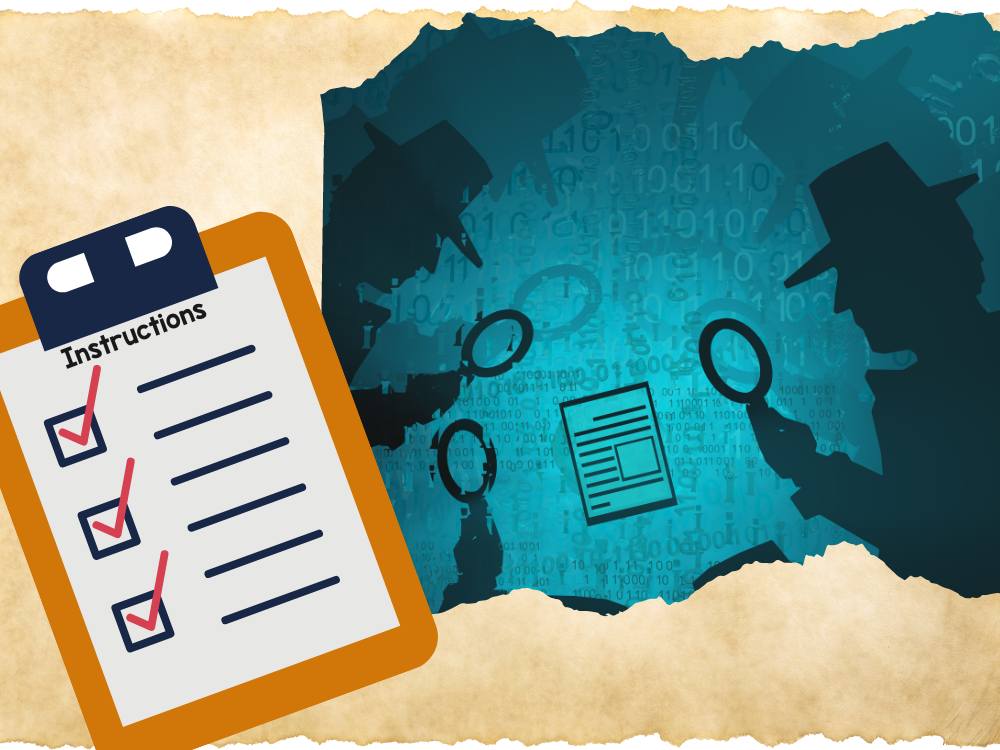
6. Encourages independence
Students often want to be told exactly what to do, hoping that it’s something easy that they can do without much thought. When something becomes slightly difficult, sometimes students will just want the easy answer. Escape rooms are great to help build the independence to work out the problems without relying on the teacher for every step.
This is not to say that they shouldn’t get any help along the way. Sometimes they can get stuck after putting forth an honest effort. You definitely want to have some system in place to give them help if they really need it. For example, you could allow a certain number of hints during the game. But the fact that it is a game, where they are either competing against time or another team, seems to shift their mindset. They naturally have some understanding that it is ultimately up to them to find the solution. This understanding encourages them to find a way to figure out the puzzle.

7. Builds patience and perseverance
Have you ever had this happen? You present an activity or problem to solve, and students look at it for a couple of minutes and if they can’t figure it out right away, they give up. They say things like, “I don’t know how.” or “I can’t do it.” or “I don’t understand this.” and they just want to shut down the activity.
This is where games really have an advantage. People are naturally more motivated and engaged when anything is gamified. If there is a mystery to solve, they are less likely to want to give up. Especially when students are working together in a group, they push each other to keep working to figure out the answers.
Learning to have patience and persevere through difficult challenges is important for all aspects of life. And when they have made it though to the end of the game, they see how their perseverance has paid off and they were able to achieve their goal. That success will be even sweeter if they found the activities challenging. This is why it’s important to make sure that the games and activities are not too easy. You want to find the right level of challenge so they will feel that they have accomplished something. It’s better to have an activity where they get a bit stuck and need a couple of hints than one that is overly simple that they can just fly through.

8. Develops analytical, logic, and problem-solving skills
A good escape room should have plenty of opportunities for students to analyze clues and use logic and problem-solving skills to complete the challenges. Again, you don’t want just a worksheet to practice the target concept, but you want to include clues, puzzles, and other challenges that require exercising all parts of the brain.
Include challenges such as cryptic puzzles, anagrams, inference activities, and logic puzzles. Another thing to try: put clues in plain sight that may not be obvious immediately, but that require looking at carefully and thinking about to see the connection. For example, in my Common Errors in Grammar and Writing Escape Room, I include the following clue; can you figure out the 6 character code to open the lock?
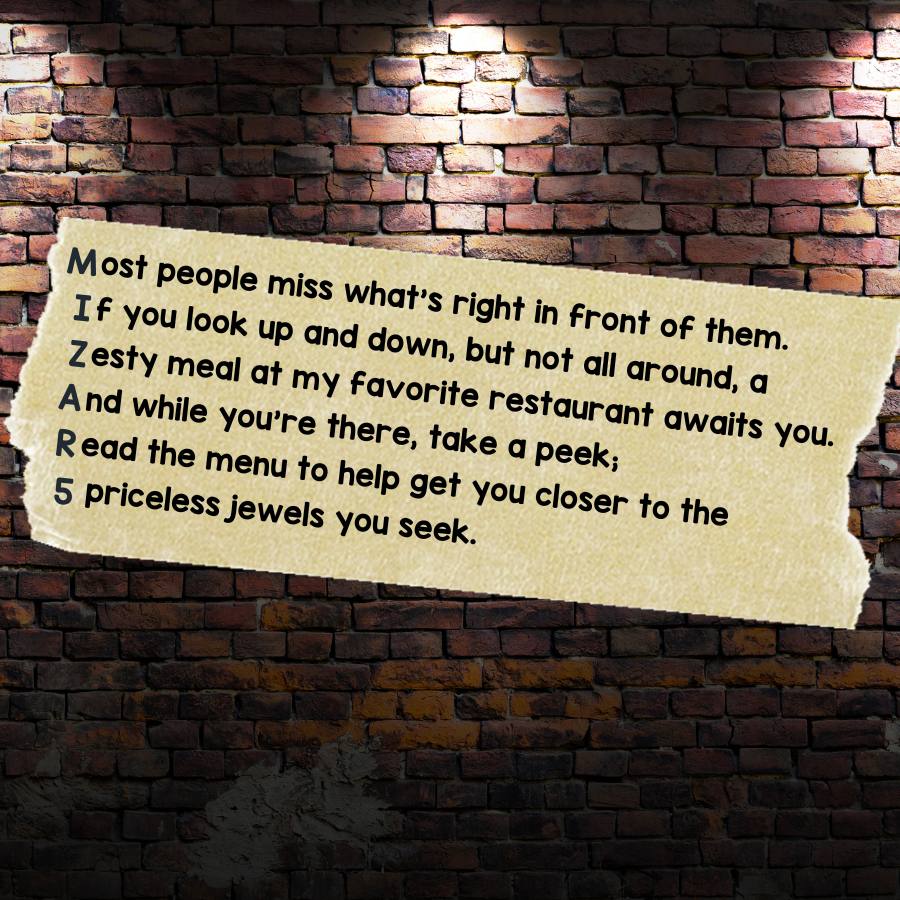
If you read the note, the first sentence is “Most people miss what’s right in front of them” and then you’ll see the instruction to “look up and down, but not all around.” You’ll notice that the first letter of each line is capitalized (even if it’s not the beginning of a word), a slightly lighter shade, and slightly offset from the rest of the word. These clues together lead to the code to open the lock: mizar5
This is just an example of the kind of clue you can use to add these kinds of analytical, logic, and problem-solving challenges to escape rooms covering any kind of academic content. Or if you don’t want to cover any specific content in an escape room, you can also have one that consists completely of critical thinking puzzles and challenges. These escape rooms can be used for a fun break for any class or to go along with specific holidays.
If you’d like to try out an escape room that is puzzle-based, take a look at this Word and Logic Puzzle Escape Room or for a fun February activity, try Valentine’s Day Escape the Chocolate Factory.

9. Improves focus, memory, and ability to think on their feet
It’s often difficult to get students to stay on task and not get distracted. But because an escape room game is fun for students, they will find it easier to focus. They are motivated by the desire to solve the challenges and finish the game; this keeps them focused on the activity and less likely to get distracted.
There are often clues in an escape room that occur in one part of a challenge, but not used until later. This means students are exercising their memory skills (as well as logic skills) to put the pieces together.
Finally, working on puzzles reinforces current connections between our neurons, ultimately enhancing the speed of our thought processes. That’s why puzzles are a great way to help students think on their feet. And this also makes it a helpful brain exercise activity to prepare for a test!
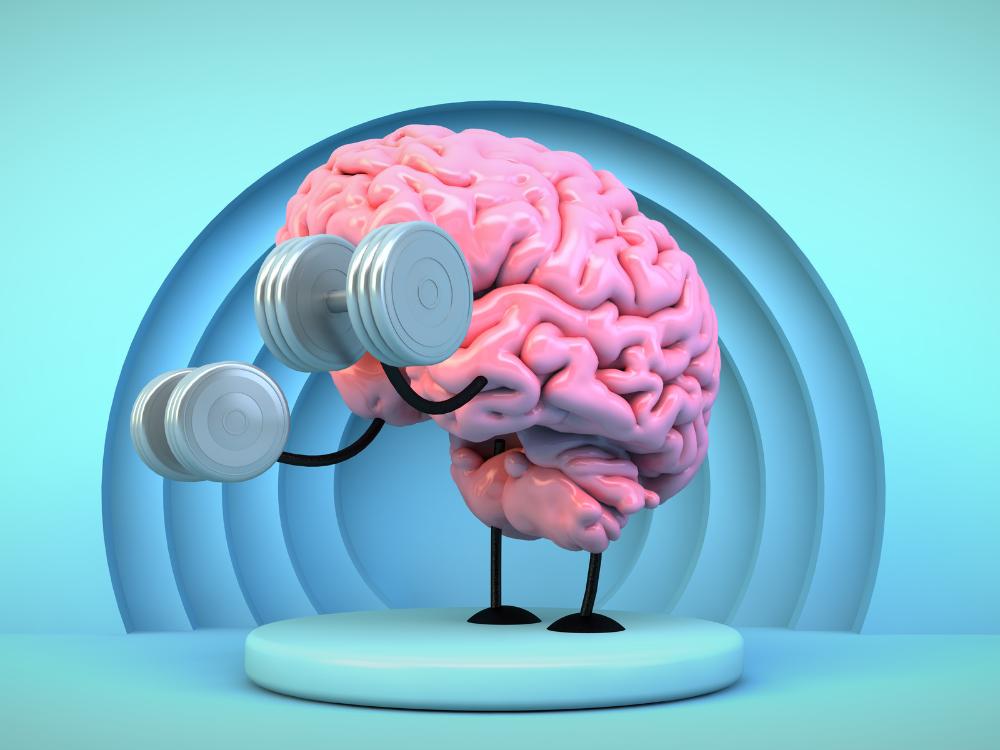
10. Encourages creative and out-of-the-box thinking
Because escape room games often have challenges or clues that are not straightforward, students are forced to search for solutions that don’t follow patterns that they would typically use. This type of lateral thinking helps students look at the problem from different angles to think of all possible solutions. Escape room games encourage students to think outside the box and take creative risks to come up with solutions that are out of the norm. Their creativity is rewarded when they crack the code or discover significance of a mysterious clue.
11. Boosts mood
Solving puzzles increases the production of dopamine, a neurotransmitter that regulates mood, memory, and concentration. As students progress through the escape room and solve puzzle after puzzle, they start feeling good because of their achievements in solving the challenges. This in turn translates to the brain feeling satisfaction and releasing more dopamine. By the time they have finished, they will likely feel in a better mood overall.

It’s a win-win!
So to sum it up: students are having fun, they’re in a good mood, and they are building all these important skills. And that puts us in a good mood. For my money, it doesn’t get much better than that!
Unleash the power of escape rooms!
You can create your own escape room, but I will say they are a very time-consuming process. The good thing about making your own is that you can tailor them to your curriculum and your own needs. And once you have completed it, you can use it year after year.
I found a very simple tutorial for creating digital locks, which is what you will need if you want to make a digital escape room. For each lock, you could link to a Google Slide that has the puzzle or activity for your students to complete. They would complete the puzzle and then type in the code to move them on to the next step. This could even work if you have paper activities, but you want to create locks to confirm that they have done the activity correctly and move to the next one.
However, to save time, especially if you’re new to escape rooms, check out TPT for ready-made escape rooms. You’ll find tons of games for just about any subject or content area, so it’s a great place to start.
Here are a few escape rooms I think your students will love:
Word and Logic Puzzles Escape Room
In this escape room activity, students solve 4 different word and logic puzzles. Each completed puzzle brings them closer to discovering the code to open the final lock. After correctly completing each puzzle, students will receive a key that contains a clue. When students have completed all 4 puzzles, they will have 4 keys with the clues they need to determine the final code.
Valentine’s Day Escape the Chocolate Factory
Individuals or teams work through puzzles to make their way through a chocolate factory to reach the stash of Valentine’s Day candies. Challenges include puzzles to encourage critical thinking, problem solving, and following directions! Get even more Valentine’s Day activities, including a FREE homophones picture puzzle!
Common Grammar and Writing Mistakes Escape Room
Individuals or teams work through puzzles to discover the location of stolen jewels. Challenges include working with common mistakes in writing, such as frequently confused words and common grammar errors. There are also other challenges to encourage critical thinking, problem solving, and following directions!
Escape the Decades Grammar Review Escape Game
In this fun, all-digital escape room adventure activity, your students will find themselves in a time warp. They need to solve puzzles and complete activities to move through the decades to get back to modern times. Challenges include grammar, spelling, and mechanics activities as well as tasks to encourage critical thinking, problem solving, and following directions!
Do you love using games that get students thinking?
I love games, and I think they are the perfect way to increase engagement in the classroom, while also helping students build important academic and social skills.
In addition to the escape rooms listed above, I have created many games and puzzles that are perfect to use in the classroom to build spelling, grammar, vocabulary, and critical thinking skills. If you’re like me and love using brain-building and fun games, you might like some of these popular favorites:
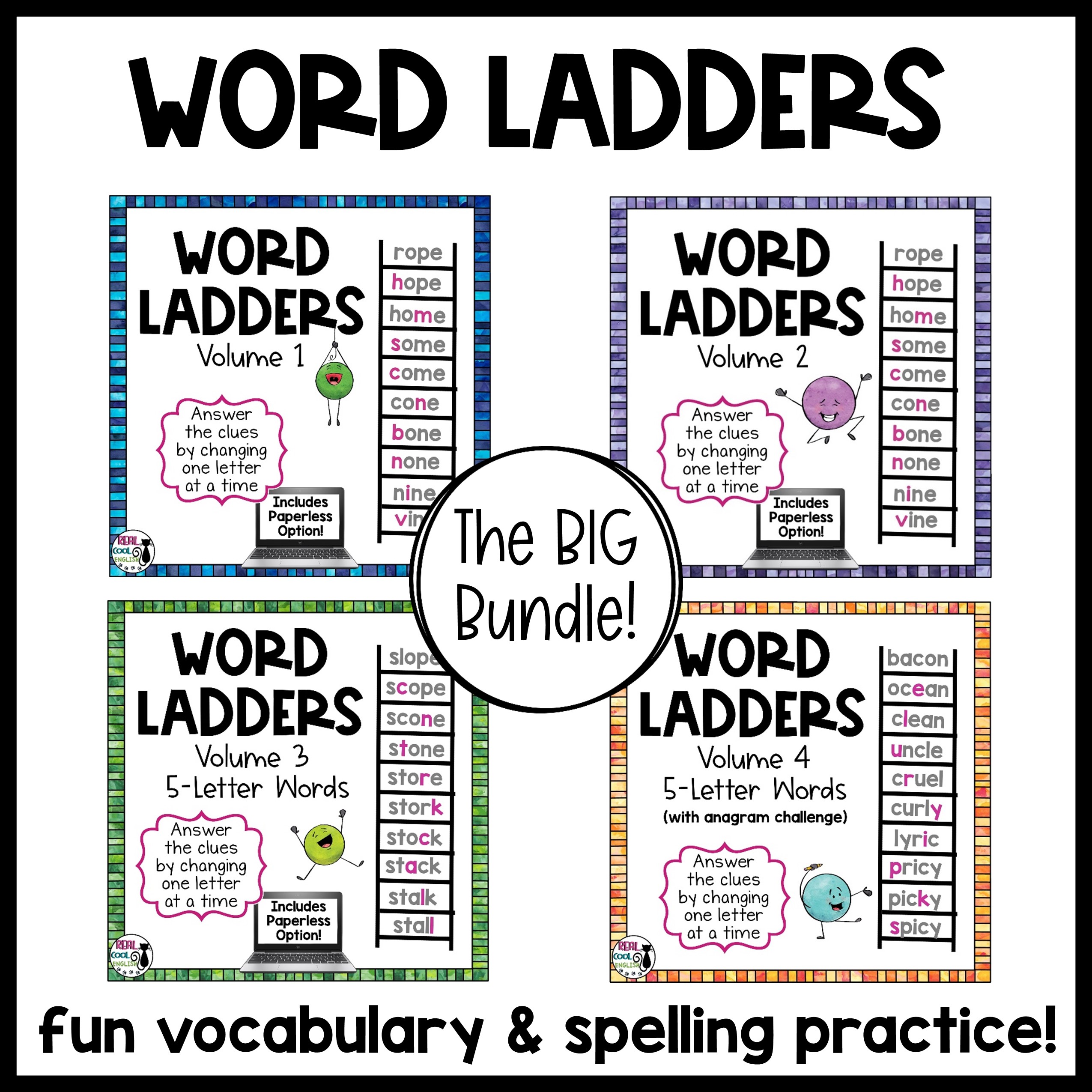 | 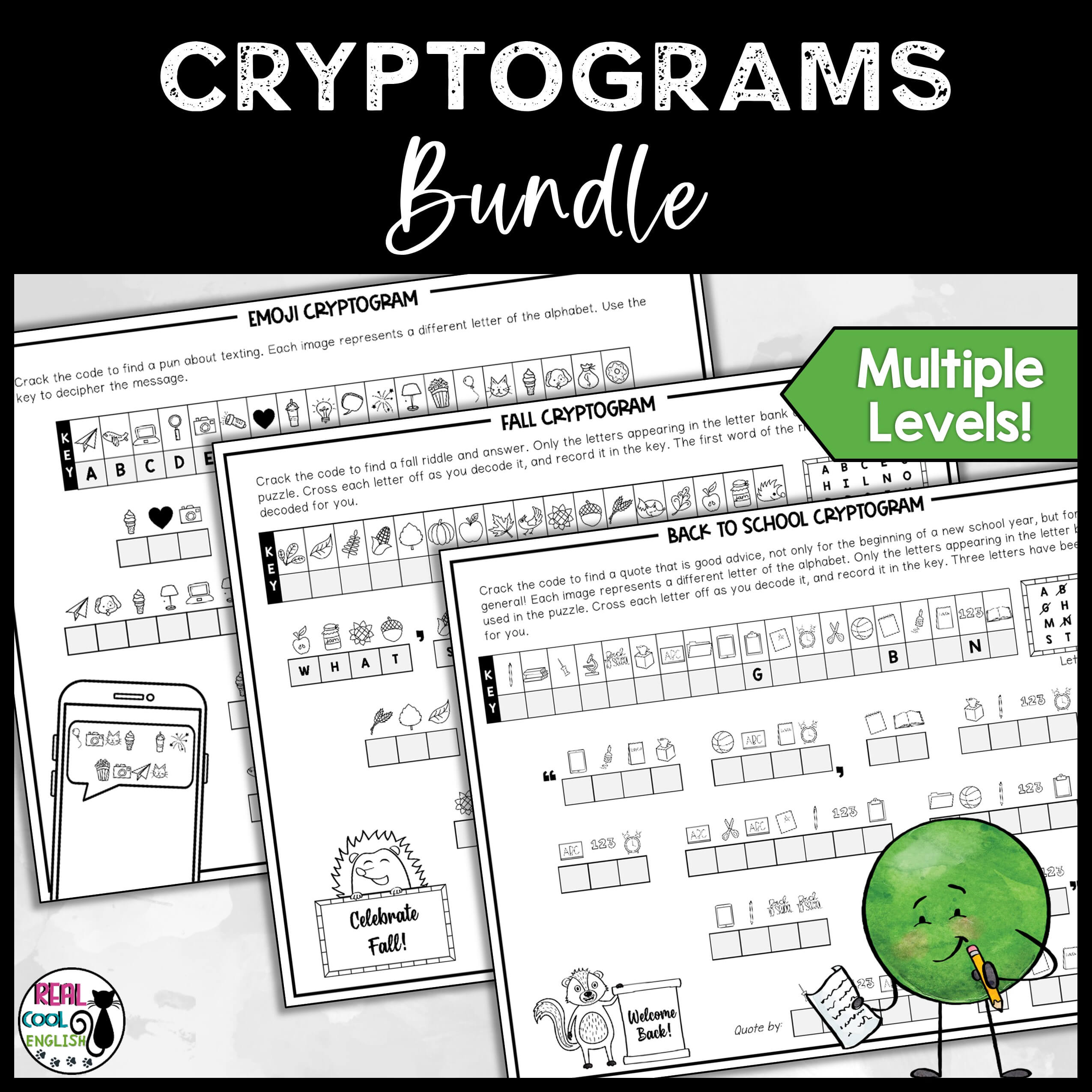 | 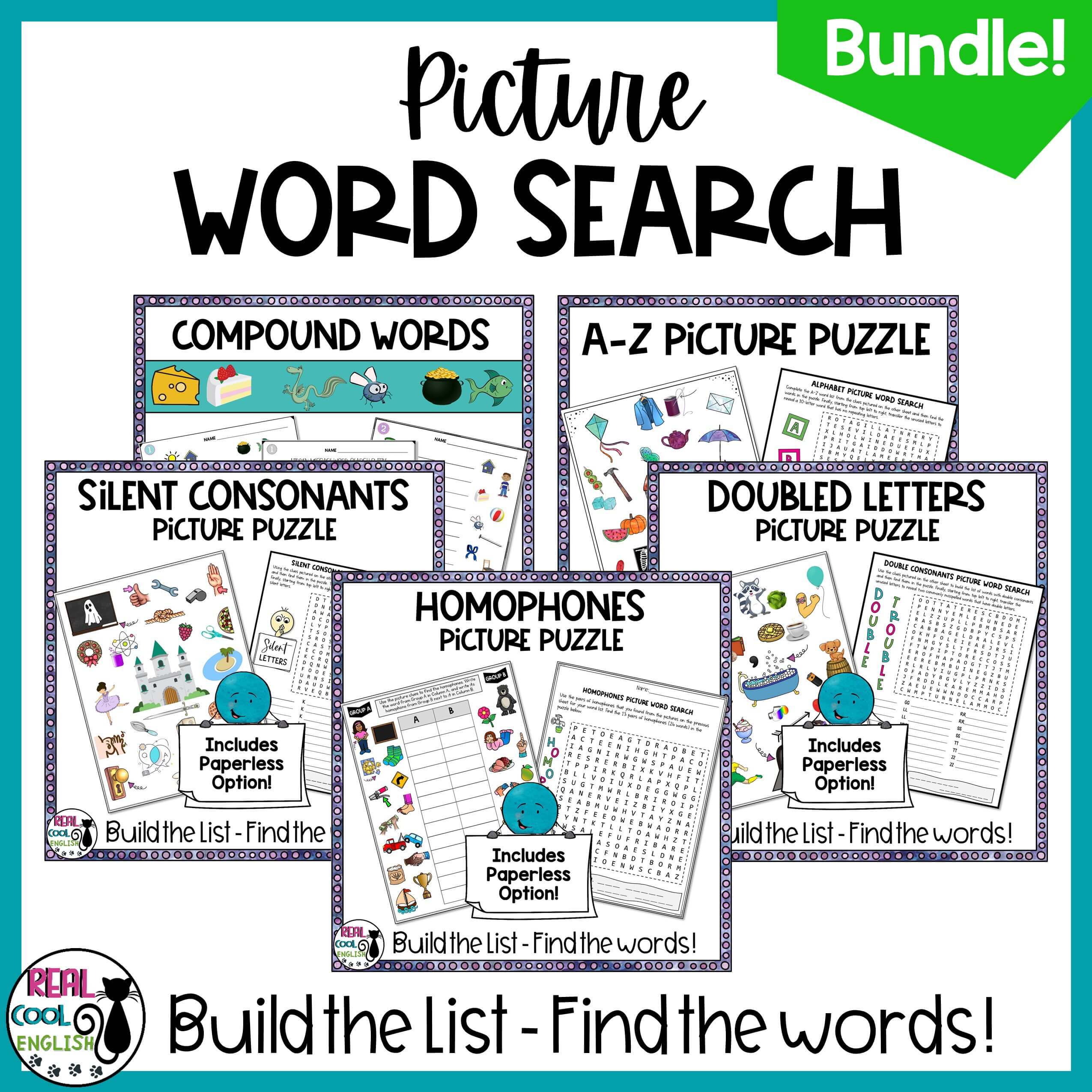 | 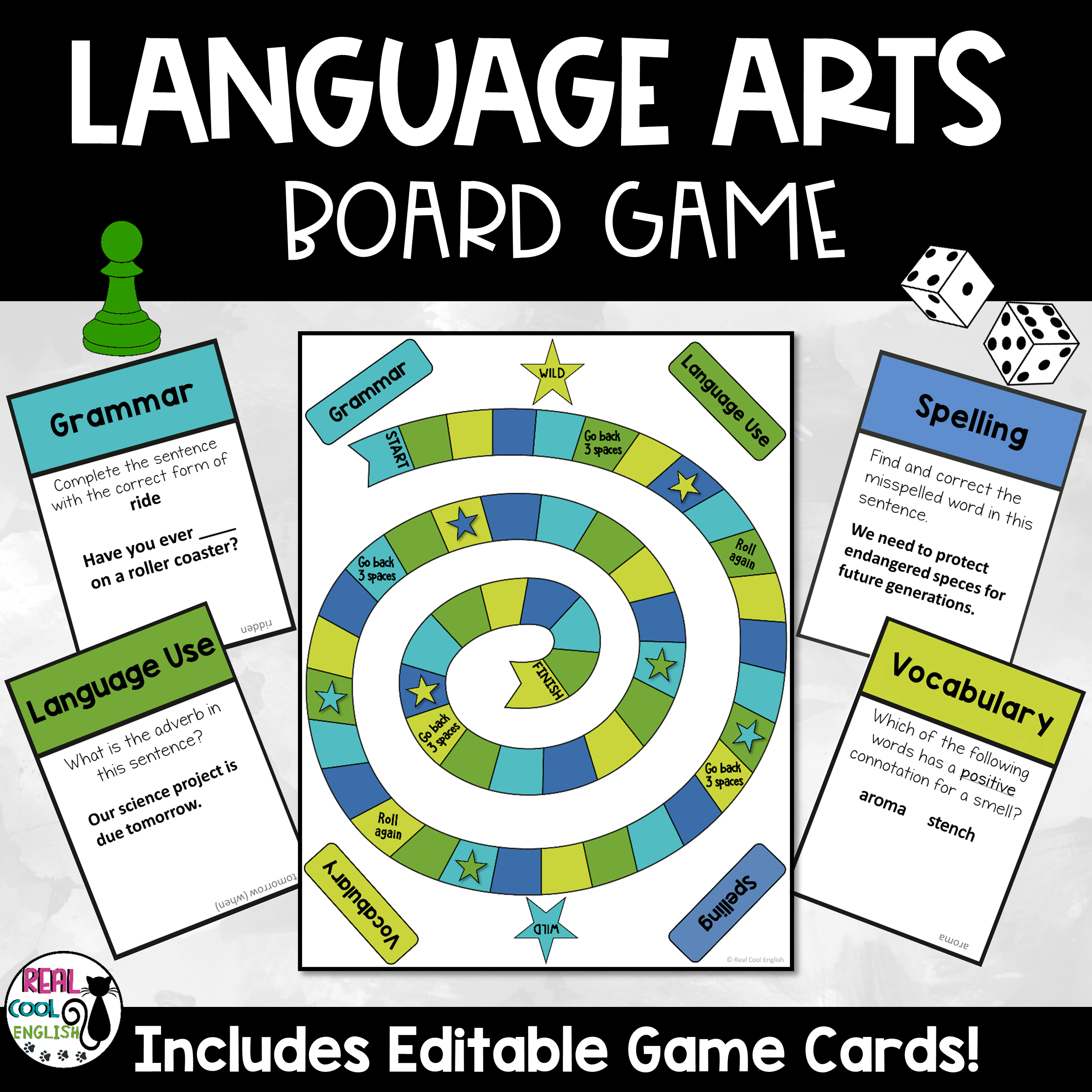 |
And if you’re like me and REALLY love games and puzzles, you definitely want to check out this Endless Mega Bundle! It has all the games mentioned in this post, plus tons more – and all at a 50% discount!
The best part? I am constantly adding games and puzzles and you can download any activities added after your purchase for FREE! So take a look at all the goodies you can find in the Endless Mega Bundle!


